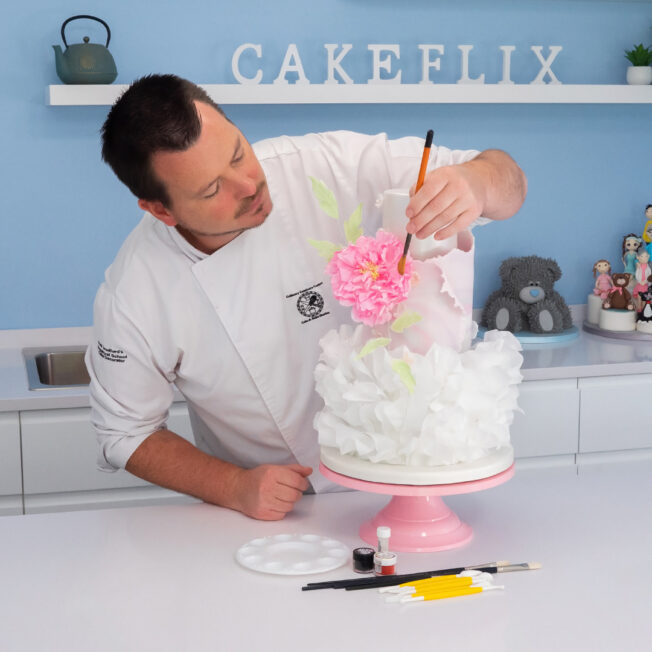Baking is not only a delightful hobby but also a rewarding profession for those with a passion for creating delicious treats. If you’ve been honing your baking skills at home and dream of turning your love for baking into a career, this article is for you. Transitioning from a home baker to a professional requires careful planning and a series of strategic steps. In this article, we’ll guide you through the essential stages to help you successfully launch your baking career.
Define Your Baking Niche
The first step in embarking on a baking career is to identify your niche. Baking encompasses a wide range of specialties, from bread and pastries to cakes and cookies. Determine which area of baking excites you the most and aligns with your skills and interests. This focus will help you refine your techniques and develop a signature style that sets you apart from others in the industry.
Polish Your Skills
To become a professional baker, it’s crucial to continuously improve your skills. Attend baking classes or workshops to learn new techniques, experiment with different recipes, and expand your knowledge. Additionally, seek opportunities to gain practical experience by volunteering at local bakeries, assisting professional bakers, or taking up internships. This hands-on experience will not only enhance your skills but also expose you to the realities of working in a commercial kitchen.
Create a Portfolio
Building a portfolio is essential to showcase your talent and attract potential clients or employers. Document your best creations through high-quality photographs, capturing the presentation and detailing of your baked goods. A visually appealing portfolio can be an effective tool to demonstrate your skills and style to prospective employers or customers. Additionally, consider creating a website or social media presence dedicated to your baking, as it provides an accessible platform to display your portfolio and interact with a wider audience.
Gain Professional Qualifications
While not mandatory, obtaining professional qualifications can greatly enhance your credibility as a baker. Look for culinary schools or institutes that offer specialized baking programs. These programs provide comprehensive training in various aspects of baking, including advanced techniques, pastry arts, food safety, and business management. Earning a diploma or certification will not only solidify your knowledge but also increase your chances of securing employment or attracting clients.
The only online accredited vocational course in baking and cake decorating where both skills and knowledge are tested is the CakeFlix Master Programme. This has been assessed to be at Level 3 (A Level equivalent) in English academic terms. The Programme is made up of 39 quizzes and 37 assignments. The quizzes test your knowledge, but don’t worry all the information is available on the course. Every assignment submitted receives personal feedback from a qualified assessor.
Develop a Business Plan
If your ultimate goal is to start your own bakery or baking business, developing a detailed business plan is essential. Outline your vision, mission, target market, pricing strategy, marketing approach, and financial projections. Conduct market research to understand the demand for your products and identify potential competitors. A well-crafted business plan will serve as your roadmap, guiding you through the initial stages of establishing your baking venture. If you have any concerns, StudyCrumb offers expert assistance in business plan writing. This platform connects you with experienced business writers who can craft compelling, well-structured, and investor-ready business plans tailored to your unique venture.
Gain Industry Experience
Before venturing into your own business, gaining industry experience is highly beneficial. Consider working in a professional bakery or pastry shop to gain insights into the day-to-day operations and challenges of running a baking business. This hands-on experience will provide you with valuable knowledge about managing inventory, customer service, pricing, and other essential aspects of the industry. Additionally, working alongside experienced bakers will allow you to learn from their expertise and build a professional network.
Network and Collaborate
Networking plays a vital role in any industry, and the baking community is no exception. Attend industry events, conferences, and trade shows to connect with fellow bakers, suppliers, and potential clients. Join baking associations or organizations to stay updated on the latest trends and developments in the field. Collaborate with other professionals on projects or participate in baking competitions to showcase your skills and expand your network. Building strong relationships within the industry can lead to valuable opportunities and referrals.
Conclusion
Transitioning from a home baker to a professional requires dedication, continuous learning, and careful planning. By defining your niche, honing your skills, building a portfolio, gaining qualifications, developing a business plan, gaining industry experience, and networking, you can successfully launch your baking career. Remember that success in the baking industry comes with persistence, creativity, and a genuine passion for your craft. Embrace the challenges, stay true to your unique style, and savor the joy of sharing your delicious creations with the world.


